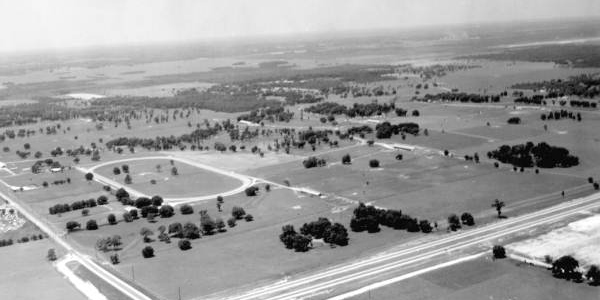
Winding Oaks Farm: Then and Now
Written by Cynthia McFarland
Ocala didn’t become Horse Capital of the World® overnight. It took the steadfast efforts of dedicated horsemen over decades to establish this area as a proven site for breeding, raising and training successful horses. Through the years, specific farms become industry leaders, their accomplishments branding them as icons in Florida’s horse business. Showcase Properties of Central Florida, Inc. has had the privilege of representing both sellers and buyers of several of these iconic farms when they changed hands. To celebrate their storied histories and discover the plans their buyers are pursuing, you’re invited to explore the “then” and “now” of these noted farms.
Our journey begins with Winding Oaks Farm, for which Showcase Properties represented the buyer, Becky Thomas.
Then
There may be no parcel of land in Marion County that has been home to more storied horses than the property where Sequel at Winding Oaks now stands. For the past 60 years, the acreage has been dedicated to breeding, raising and training Thoroughbreds, first when it was Tartan Farms, then as Mockingbird Farm and later as Winding Oaks Farm. Whether born on the property, trained or raised there, dozens of stakes winners and numerous champions are connected with these three iconic farms, Tartan Farms, including horses that have been recognized with some of the Thoroughbred racing’s greatest honors. The words “legacy” and “historic” aptly describe this property, no exaggeration necessary.
Tartan Farms
 In November 1960, Tartan Farms was established on 320 acres of prime land in Ocala that owner William L. McKnight bought from Bonnie Heath II, one of the state’s foundation Thoroughbred breeders. The son of South Dakota homesteaders, McKnight’s work ethic and head for business propelled him up the ladder at Minnesota Mining and Manufacturing Co (3M), the company behind Scotch Tape and Post-it Notes.
In November 1960, Tartan Farms was established on 320 acres of prime land in Ocala that owner William L. McKnight bought from Bonnie Heath II, one of the state’s foundation Thoroughbred breeders. The son of South Dakota homesteaders, McKnight’s work ethic and head for business propelled him up the ladder at Minnesota Mining and Manufacturing Co (3M), the company behind Scotch Tape and Post-it Notes.
He was an innovative industrialist who happened to love racing. The red tartan on 3M products represented the plaid of the McKnight clan and that distinctive red plaid would also become the racing silks of McKnight’s Tartan Stables. He was an innovative industrialist who happened to love racing. The red tartan on 3M products represented the plaid of the McKnight clan and that distinctive red plaid would also become the racing silks of McKnight’s Tartan Stables. When McKnight launched Tartan Farms, he was counted among the country’s wealthiest men. His passion for Thoroughbreds led him to become deeply involved in racing, not only as a breeder and owner, but in the financing and operation of such classic south Florida racetracks as Tropical Park, Hialeah Park and Calder Race Course.
Over time, Tartan Farms grew to 700 acres and occupied a constant presence at the top of the nation’s leading breeders’ lists for 18 long years before it was finally dispersed in the late 1980s. Tartan Farms bloodstock made significant contributions to Florida’s Thoroughbred industry and included such outstanding broodmares as Aspidistra, Ta Wee, and stallions Dr. Fager, Codex, Your Alibhai, Minnesota Mac, Intentionally, In Reality and more. Among the best racehorses produced by Tartan Farms was Dr. Fager, an outstanding runner whose world record of 1:32 1/5 for the fastest mile on dirt run by a Thoroughbred was set in 1968 and still stands all these years later. Nerud named the colt after the neurosurgeon who operated on Nerud’s brain to remove a bloodclot he sustained following a horse accident. A five-time Eclipse champion, the speedy Dr. Fager was Horse of the Year in 1967 and 1968. He was honored as Florida Horse of the Year twice and was even made a member of the Marion County Chamber of Commerce. Other memorable racehorses from Tartan Farms include graded stakes winners and champions Codex, Dr. Patches and Tasso.
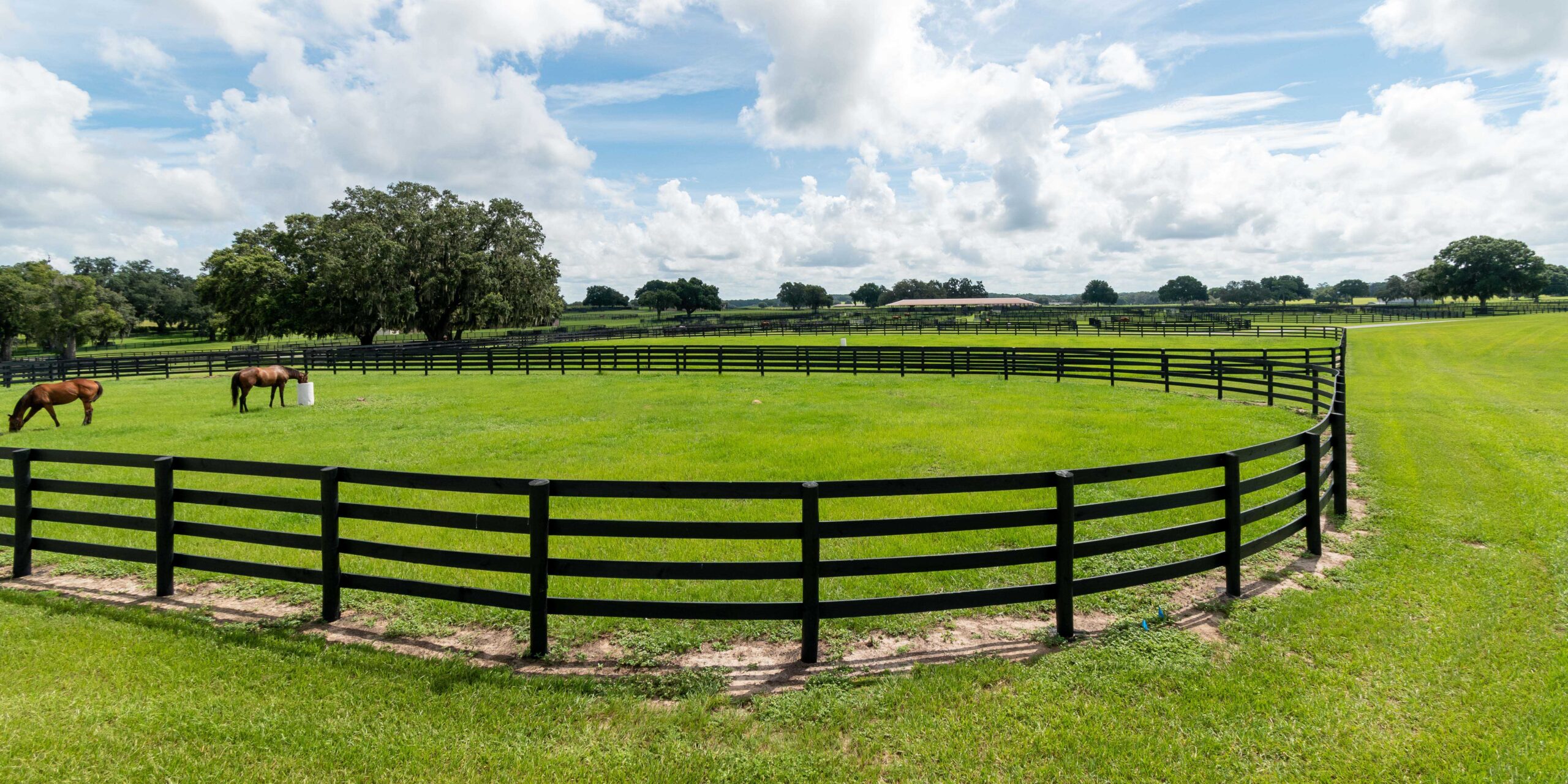
In fact, the last champion Nerud bred for Tartan Farms was Genter’s colt Unbridled, the Kentucky Derby winner and Eclipse champion Horse of the Year in 1990.
Mockingbird Farm
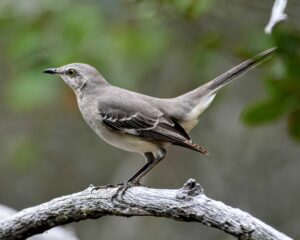 In 1970, when Harry T. Mangurian Jr. purchased the property, Tartan Farms was renamed Mockingbird Farm and the tradition for developing top Thoroughbreds on this parcel of land continued.
In 1970, when Harry T. Mangurian Jr. purchased the property, Tartan Farms was renamed Mockingbird Farm and the tradition for developing top Thoroughbreds on this parcel of land continued.
Mangurian successfully combined business and philanthropy with a driving passion for horses. He was known in the world of professional basketball as owner of the Boston Celtics, but for fans of Thoroughbred racing, he was a highly respected breeder and owner.
Indeed, Mangurian was recognized by the Thoroughbred Owners and Breeders’ Association (TOBA) as National Thoroughbred Breeder of the Year in 1998 and 2000, and National Owner of the Year in 2004. He was honored with an Eclipse Award of Merit in 2002, the most prestigious honor for an owner in American Thoroughbred racing industry.
Racing Hall of Fame trainer Mark Casse has strong ties to this particular piece of Ocala property and knew Mangurian for decades. Casse trained a number of Mangurian’s horses at the racetrack before accepting the position as private trainer and general manager of operations at Mockingbird Farm in the 1990s.
“When I went to work for Mr. Mangurian, he had about 40 broodmares, but we were buying and claiming mares at the track,” recalls Casse of the effort to increase and improve the farm’s bloodstock.
“We had the great Valid Appeal, who was so instrumental in Florida breeding for so many years. ”
—Mark Casse, Racing Hall of Fame Trainer
Winding Oaks
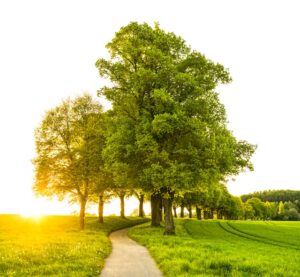 Through the years, Manugurian, like McKnight, expanded the farm’s property. By the end of 2001, when Mangurian finalized arrangements to sell his highly successful Mockingbird Farm, it totaled about 1,000 acres, a portion of which fronted the busy stretch of Highway 200 west of I-75.Through the years, Manugurian, like McKnight, expanded the farm’s property. By the end of 2001, when Mangurian finalized arrangements to sell his highly successful Mockingbird Farm, it totaled about 1,000 acres, a portion of which fronted the busy stretch of Highway 200 west of I-75. The farm was bought by Canadian native and year-round resident of Barbados, Eugene Melnyk, owner of the Ottawa Senators of the National Hockey League, and CEO and chairman of Biovail Corp., a pharmaceutical company. “Mr. Mangurian is a great horsemen and one of the greatest breeders of our time. I’m hoping to continue the tradition at that farm, albeit under the Winding Oaks name,” said Melnyk at the time. “My hope is that with the broodmares we have now and the ones we’ll be breeding over the next decade, we will be at the stature that Mr. Mangurian was at. We have gotten letters from people in the community saying how grateful they are for us keeping this as a farm and not selling it for commercial development. I’m committed, as long as I’m around and in the horse business, to keep it as a working farm.”
Through the years, Manugurian, like McKnight, expanded the farm’s property. By the end of 2001, when Mangurian finalized arrangements to sell his highly successful Mockingbird Farm, it totaled about 1,000 acres, a portion of which fronted the busy stretch of Highway 200 west of I-75.Through the years, Manugurian, like McKnight, expanded the farm’s property. By the end of 2001, when Mangurian finalized arrangements to sell his highly successful Mockingbird Farm, it totaled about 1,000 acres, a portion of which fronted the busy stretch of Highway 200 west of I-75. The farm was bought by Canadian native and year-round resident of Barbados, Eugene Melnyk, owner of the Ottawa Senators of the National Hockey League, and CEO and chairman of Biovail Corp., a pharmaceutical company. “Mr. Mangurian is a great horsemen and one of the greatest breeders of our time. I’m hoping to continue the tradition at that farm, albeit under the Winding Oaks name,” said Melnyk at the time. “My hope is that with the broodmares we have now and the ones we’ll be breeding over the next decade, we will be at the stature that Mr. Mangurian was at. We have gotten letters from people in the community saying how grateful they are for us keeping this as a farm and not selling it for commercial development. I’m committed, as long as I’m around and in the horse business, to keep it as a working farm.”“My hope is that with the broodmares we have now and the ones we’ll be breeding over the next decade, we will be at the stature that Mr. Mangurian was at. We have gotten letters from people in the community saying how grateful they are for us keeping this as a farm and not selling it for commercial development. I’m committed, as long as I’m around and in the horse business, to keep it as a working farm ”
—Eugene Melnyk, a former owner of Winding Oaks Farm
Horses racing under the name Eugene and Laura Melnyk have earned $14,733,139, while Melnyk Racing Stables, Inc. has earnings of $32,974,904.
A major investment Melnyk made at the farm was building a state-of-the-art 1-mile training track and a 7/8-mile turf course.
“The track put in by Melnyk is a tremendous track,” says Casse. “In the Mockingbird era, it was just a 5/8-mile track that Mr. Mangurian put in. All the good horses that ever came out from Mockingbird were raised on that little 5/8-mile track.”
In 2014, Melnyk made the decision to retire from the Thoroughbred business and to eventually develop a good portion of the farm. He was, however, intent on preserving the training portion of Winding Oaks as equine property.
And Now…
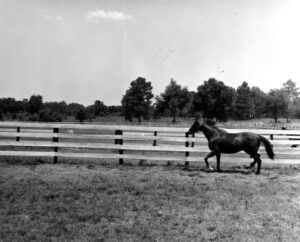 Newcomers to Ocala would struggle to believe that the bustling, traffic-laden corridor of State Road 200 from the Paddock Mall west to S.W. 60th Avenue was not that long ago farmland that made up some of the county’s earliest and most prominent Thoroughbred operations. The iconic Bonnie Heath Farm, home of Needles, Florida’s first Kentucky Derby winner, was sold for development in the late 1990s. (A small parcel is still the site for the historical Mt. Calvary Missionary Baptist Church, the only remaining symbol of the black sharecropper community of Calvary from 1872.) Today, the development’s name serves as a reminder of the wide-open land where horses once grazed. The sprawling Heathbrook includes substantial retail and residential components.
Newcomers to Ocala would struggle to believe that the bustling, traffic-laden corridor of State Road 200 from the Paddock Mall west to S.W. 60th Avenue was not that long ago farmland that made up some of the county’s earliest and most prominent Thoroughbred operations. The iconic Bonnie Heath Farm, home of Needles, Florida’s first Kentucky Derby winner, was sold for development in the late 1990s. (A small parcel is still the site for the historical Mt. Calvary Missionary Baptist Church, the only remaining symbol of the black sharecropper community of Calvary from 1872.) Today, the development’s name serves as a reminder of the wide-open land where horses once grazed. The sprawling Heathbrook includes substantial retail and residential components.
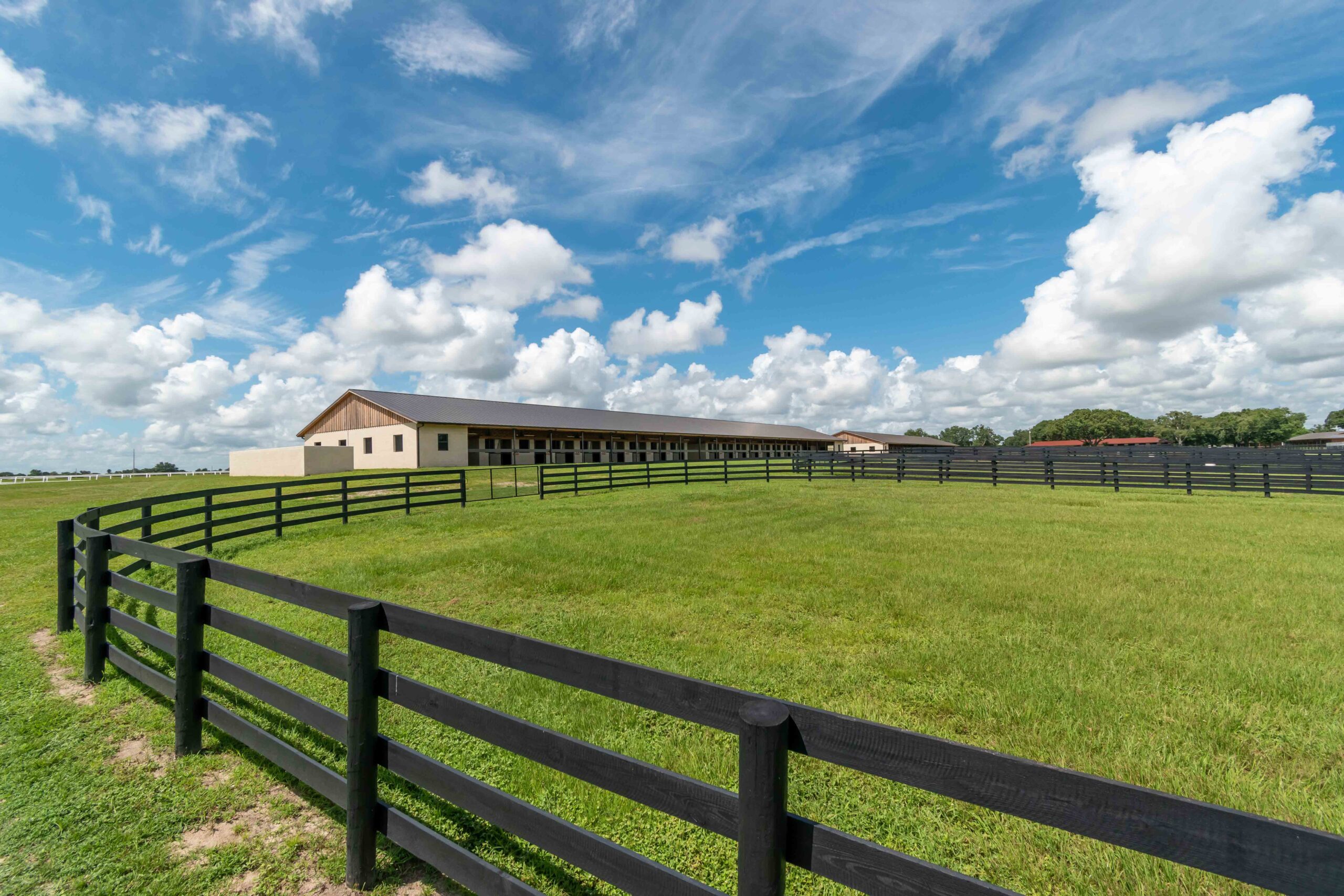
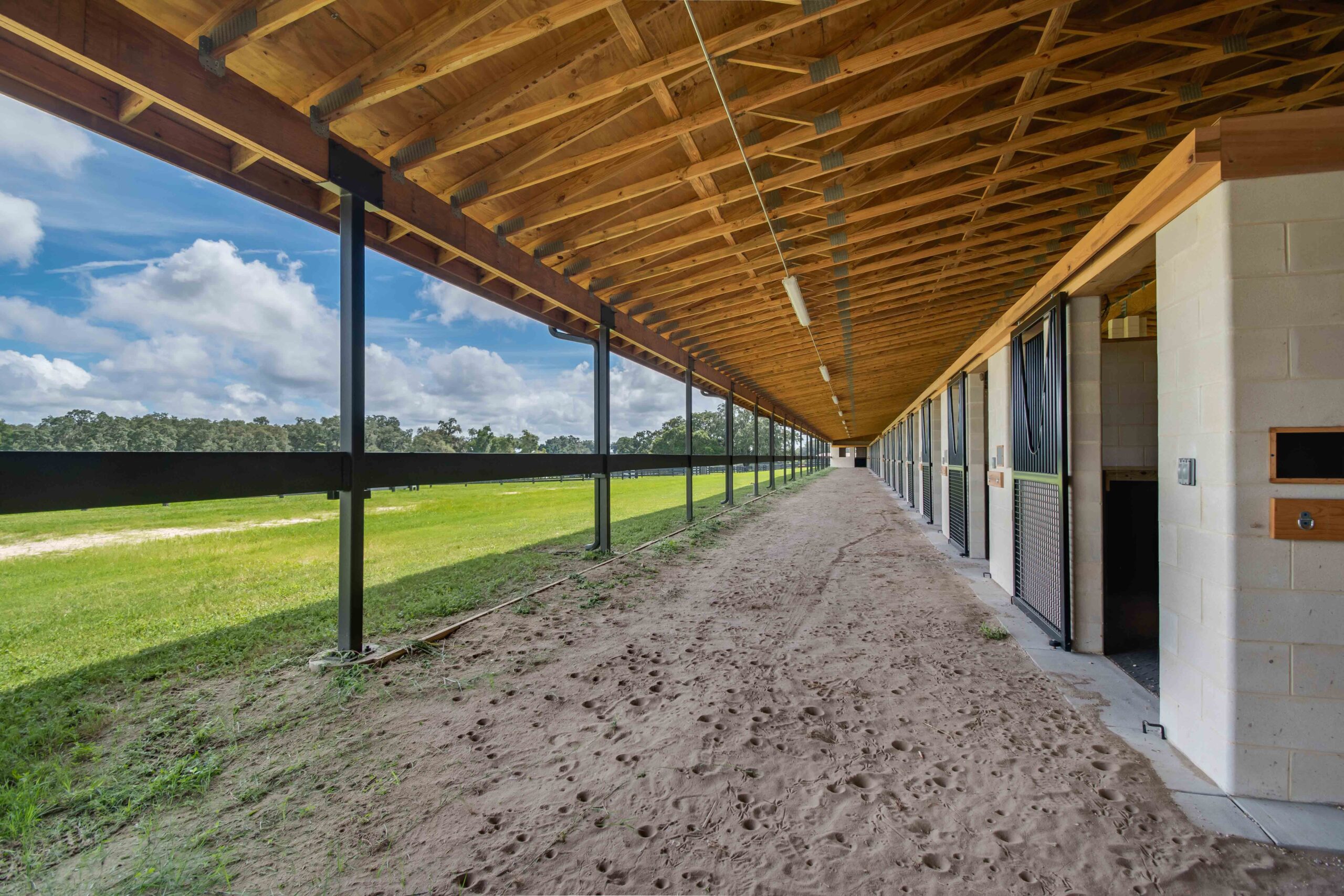
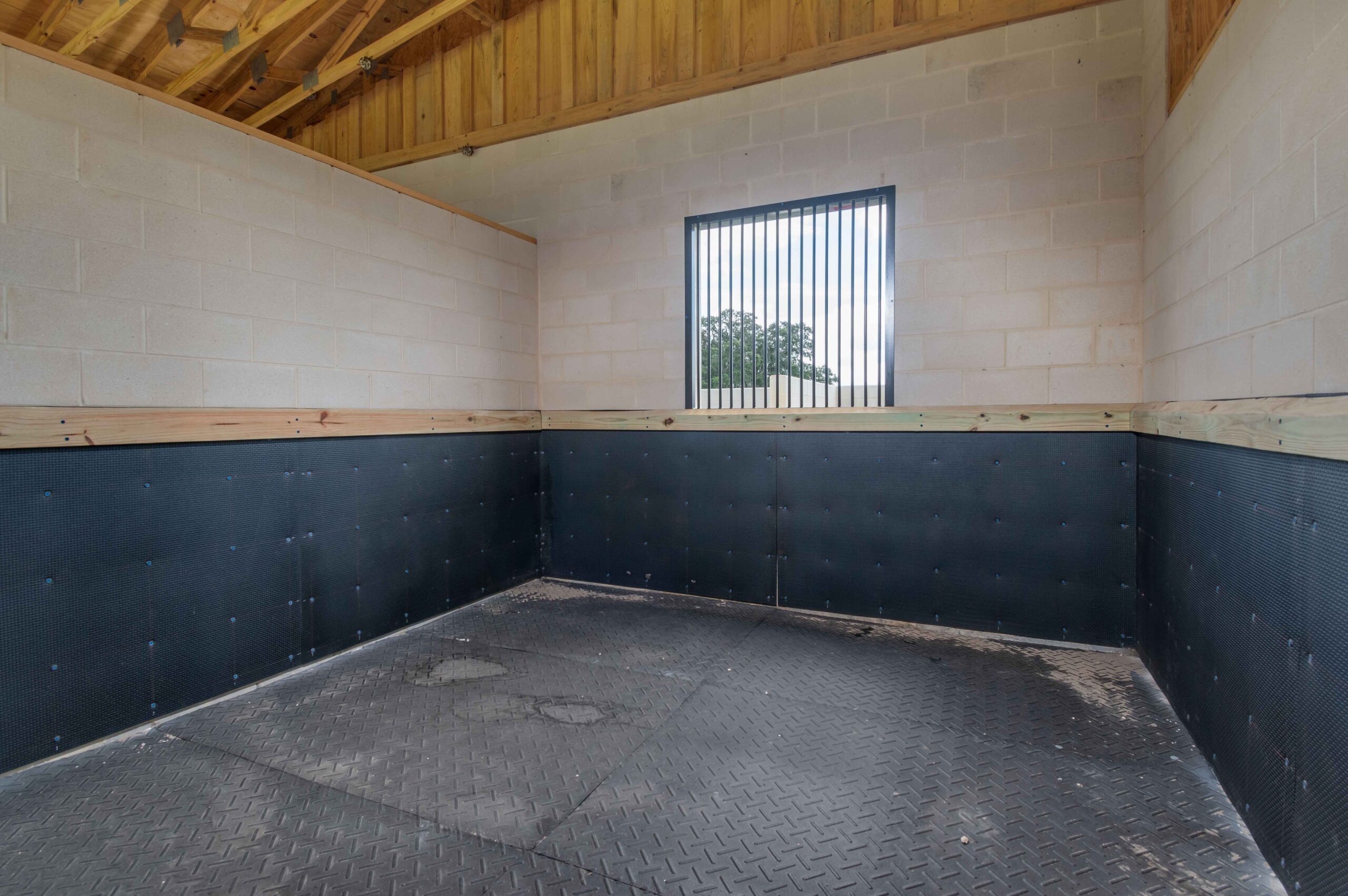
“I had been showing Becky Thomas a number of training facilities in the Ocala area with tracks, but she kept comparing what we were looking at with the facility at Winding Oaks. I remember saying, ‘You know, Winding Oaks is for sale–-let’s see if we can put together a deal that works for everyone.’ It was such an accomplishment to come to terms together and make sure that a portion of this iconic farm stayed true to its horse industry roots for the foreseeable future,” ”
—Valerie Dailey, owner/broker of Showcase Properties
When the scenic rolling acres of pasture marked by massive old oaks become too valuable, landowners often succumb, understandably, to the developer’s siren call. All too often, the fences come down and the bulldozers come in, relegating yet another horse farm to memory. Much of the land that once cradled three powerful operations in the Florida Thoroughbred world over six generations is now slated for development–but not all of it. At least not yet. Fortunately, the curtain is not yet being drawn on the historic farm’s days as a training center. In December 2019, local horsewoman Becky Thomas purchased 178 acres of the farm. A year later she bought another smaller parcel, to bring her operation, Sequel at Winding Oaks, to a total of 224 acres.
“I had been showing Becky Thomas a number of training facilities in the Ocala area with tracks, but she kept comparing what we were looking at with the facility at Winding Oaks,” recalls Valerie Dailey, owner/broker of Showcase Properties. “I remember saying, ‘You know, Winding Oaks is for sale–-let’s see if we can put together a deal that works for everyone.’ It was such an accomplishment to come to terms together and make sure that a portion of this iconic farm stayed true to its horse industry roots for the foreseeable future,” says Dailey. Thomas is very familiar with the farm, having known the management team all the way back in the Tartan days, and having leased barns there for her training business for the last several years.
“I’m very excited to be able to train on that track. It’s unlike any track in Marion County. You could run a race meet there. Mr. Melnyk put in a lot of money to build it right.”
—Becky Thomas, owner of Sequel at Winding Oaks Farm
A native Floridian, Thomas was born in Kissimmee and has lived in the Ocala area her entire life. A prominent breeder, trainer and pinhooker, Thomas also has a successful breeding farm in New York. She owns all or part of 50 to 60 mares, which are kept in New York or Kentucky. Thomas trains about the same number of horses each year, targeting both 2-year-old sales and the racetrack directly. At present, Thomas has 71 yearlings at the farm who will enter the breaking and training process this fall. “In 2019, I’d been leasing there for three years, so I’ve been training on that track now for four years. It’s a magnificent track,” says Thomas of Winding Oaks.
“When Mr. Melnyk built it, he spared no expense. It is essentially a replica of the Delaware Park track, a 1-mile racetrack with wide sweeping turns, as well as a 7/8-mile turf course,” she notes. “I’m very excited to be able to train on that track. It’s unlike any track in Marion County. You could run a race meet there. Mr. Melnyk put in a lot of money to build it right.” When Thomas bought the property, there were seven barns in place. She promptly embarked on a massive project to build two new modern concrete block barns, each with 36 stalls, so there are now close to 200 stalls in the training center. With new equipment in place, Thomas has also redone the irrigation system for both tracks.


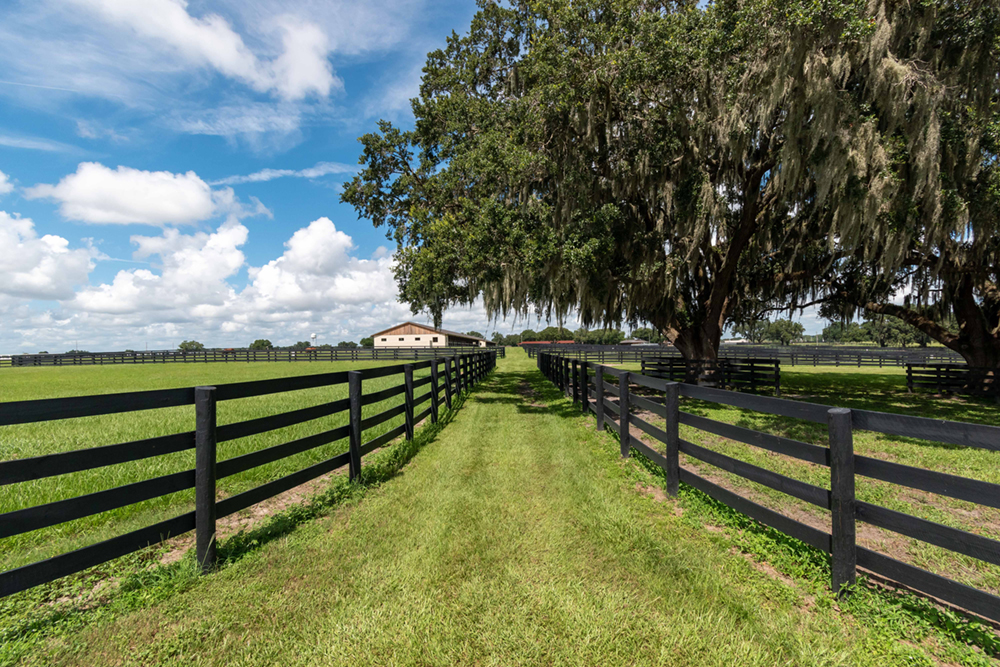
The renovation will be completed this September. Thomas’ own training business will occupy five of the nine barns and she will lease out the other four. “I’m not just ‘renting stalls.’ The barns we’ve built are high-end and will attract a boutique client, hopefully just one or two trainers,” she notes. Thomas has installed a landscape buffer of a giant hedge along her farm property that she knows will bump up against the commercial portion of the Winding Oaks planned development. “It’s close to everything you need, but when you’re on the farm you would not have any idea you’re that close to town, which is why I wanted to buy it. Every morning I do pictures and videos of the sun rising over the racetrack and pond,” says Thomas. “There are even two bald eagles who live there. It’s a busy part of town but, on the farm, you are on your own island.”
“We’ve spent millions of dollars, and I didn’t spend that thinking I would sell. We are grandfathered in with agricultural acreage, so it will remain an agricultural entity for many years. ”
—Becky Thomas, owner of Sequel at Winding Oaks Farm
With development now on all sides, will Thomas eventually sell? It’s a valid question, but that’s definitely not on her radar any time soon. “We’ve spent millions of dollars, and I didn’t spend that thinking I would sell. We are grandfathered in with agricultural acreage, so it will remain an agricultural entity for many years,” says Thomas. “I’m 100 percent sure it will be developed at one point, but I don’t think it will be in my lifetime. I’m not young, but I’m not planning on going anywhere. In the foreseeable future I don’t see us selling.”
Planned Developments
As of mid-July 2021, the only portions of the property that have been sold are the agricultural section owned by Thomas, 20 acres purchased by the Marion County School Board as the site of a future elementary school and the Jaguar/Land Rover dealership along State Road 200. The remaining acreage is still owned by Eugene Melnyk’s Cradle Holdings, Inc. and is for sale for development.
In the acreage designated residential at the Winding Oaks planned development, plans call for 2,068 single-family homes and 1,080 multi-family units, which could be condos or apartments, according to David Boston, planning & zoning manager for the City of Ocala Growth Management Department. Boston points out that because this property is currently for sale for development, it’s not possible to know the exact timeline for residential construction. “Plans for the first homes aren’t in yet, so it’s still going to be a year to a year-and-a-half before you start seeing anything on the ground,” says Boston, who estimates that the first homes probably won’t be built until 2023.
“Plans for the first homes aren’t in yet, so it’s still going to be a year to a year-and-a-half before you start seeing anything on the ground. ”
—David Boston, planning & zoning manager for the City of Ocala Growth Management Department

Equine cemetery preserved
Believed to be the largest equine cemetery in Florida, this hallowed area has been preserved and maintained each time the farm was sold.
The tradition of interring famous Florida-breds began with Tartan Farms and continued through Winding Oaks. The remains of 23 Thoroughbreds are buried at the scenic site, which dominates the highest vista of the property and is bordered by ancient live oaks, which will also be preserved. Representing champions and outstanding bloodstock, each horse is memorialized with a gravestone marker bearing their name, sire and dam, dates of birth and death, and accomplishments.
Among the horses buried at the historic cemetery are:
Tartan Farms era
Aspidistra 1954-1978
Cequillo 1956-1986
Codex 1977-1984
Dark Mirage 1965-1969
Desert Trial 1963-1987
Dr. Fager 1964-1976
Dr. Patches 1974-2002
Gentle Touch 1976-1984
Intentionally 1956-1970
Minnesota Mac 1964-1996
My Dear Girl 1957-1988
Ta Wee 1966-1980
Mockingbird Farms era
Desert Trial 1963-1987
Valid Appeal 1972-2002
Your Alibhai 1958-1977
Winding Oaks era
Archers Bay 1995-2002
Marley Vale 1996-2012
Pico Tenerifee 1996-2012
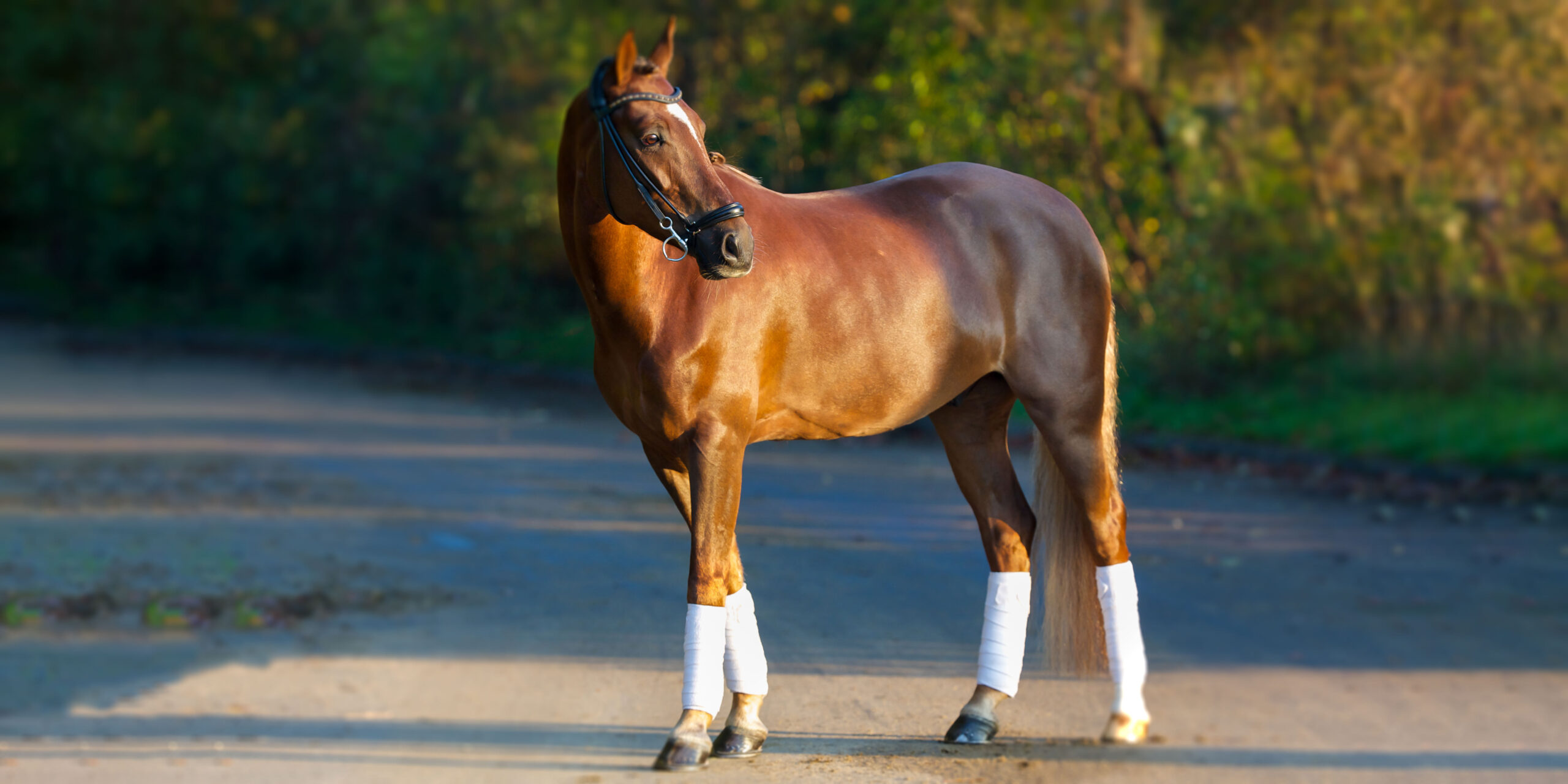
“We owe a huge debt of gratitude to all the previous owners of the farm whose vision was not only to honor significant horse champions, but to also work with each other to ensure the cemetery was preserved for the community. ”
—Tammy Gantt, associate vice president at the Florida Thoroughbred Breeders’ & Owners’ Association (FTBOA)
“I was thrilled when I learned that Mr. Melnyk conveyed to the developers that it would be great if the FTBOA would help with verbiage for a historical marker that talks about the history of the property and the horses that are buried there. I knew at that moment the preservation efforts were becoming a reality,” says Gantt.
“We owe a huge debt of gratitude to all the previous owners of the farm whose vision was not only to honor significant horse champions, but to also work with each other to ensure the cemetery was preserved for the community,” adds Gantt. She notes that the history of the famed Thoroughbred horses memorialized at the cemetery epitomize the dreams of the many horse breeders who have made our area famous.
We love where we live and we hope to inspire the same in our customers– you can browse luxury ranches and horse farms for sale to learn more about what we have available in the Ocala / Marion County area. We also have a selection of Alachua county farms for sale. If you’re interested in creating your own equine legacy in the Horse Capital of the World®, contact us and talk to an equestrian real estate agent today! We’ll help you find a unique equestrian property that meets your needs.
The Iconic Horse Farm series was created with the goal of exploring the history of the farms and local equine industry that helped make Ocala the city that we love. You can take a look at our previous Iconic Horse Farm series posts here.
Vintage photos courtesy of Florida Memory archive.
